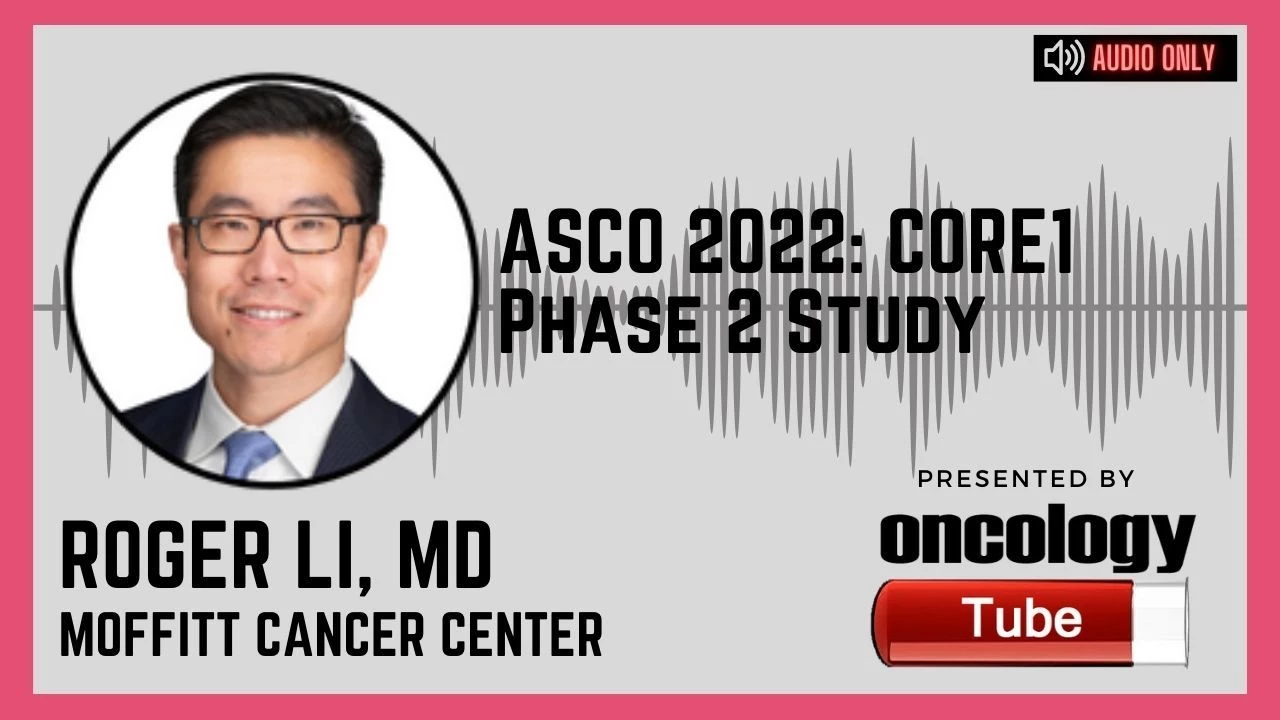Roger Li, MD, Genitourinary Oncologist at Moffitt Cancer Center. In this video, he speaks about ASCO 2022 abstract CORE1: Phase 2, single-arm study of CG0070 combined with pembrolizumab in patients with nonmuscle-invasive bladder cancer (NMIBC) unresponsive to bacillus Calmette-Guerin (BCG).
Origins:
CG0070 is an oncolytic vaccine based on Ad5 that has been modified to express GM-CSF and replicate selectively in tumor cells with mutant or defective RB. The mechanism of action of CG0070 comprises cell lysis and immunogenic cell death, which is accelerated in the presence of GM-CSF. In an open label phase 2 research, individuals with high risk NMIBC previously treated with BCG had an overall CR rate of 62 percent and a CR at 12 months (m) of 29 percent. The FDA has approved IV pembrolizumab for patients with BCG-unresponsive CIS (with or without papillary tumors) with an overall complete RR of 41% and a 12 m CR rate of 20%. The potential synergy of the two medicines in the treatment of BCG-unresponsive NMIBC will be assessed in this phase 2 research.
Methodology:
35 patients with BCG-unresponsive CIS, with or without concurrent Ta or T1 illness, will be treated with intravenous CG0070 (1×1012 vp) in conjunction with 400 mg IV pembrolizumab every 6 weeks. CG0070 will be given weekly for six weeks as an induction dose, followed by weekly for three weeks as a maintenance dose at months three, six, nine, twelve, and eighteen. Patients with persistent CIS or HG Ta at 3 months may be re-inducted with weekly x 6 doses of CG0070. Pembrolizumab will be given up to 24 m. Response evaluation will involve q 3 m cystoscopy with biopsy of diseased regions, urine cytology, CTU/MRU, and obligatory bladder mapping biopsies at 12 m. Disease recurrence will be listed as HG disease recurrence. The study’s primary outcome is CR at 12 m. Secondary objectives will include CR at any time, progression-free survival, response duration, cystectomy-free survival, and safety. Changes in the tumor immunological microenvironment, systemic immune stimulation, viral replication, and transgenic expression will all be assessed. The expression of PD-L1, coxsackie adenovirus receptor, E2F transcription factor, and anti-Ad5 Ab titer at baseline will be linked to tumor response.
Findings:
So far, a CR rate of 87.5 percent (14/16) has been reported at the 3 m assessment timepoint. All patients in CR at 3 m remained in CR at the following timepoints: 9/9 at 6 m, 6/6 at 9 m, and 3/3 at 12 m. Therapy-related adverse events have largely been limited to temporary grade 1-2 local-regional genitourinary adverse events, with no reports of grade 3, 4, or SAE linked to CG0070/Pembroluzimab treatment.
Observations:
This first results on the efficacy and safety of CG0070 in combination with pembrolizumab for the treatment of BCG resistant NMIBC is promising. At the meeting, additional data on efficacy, safety, and biomarker (CAR, E2F, and PDL1) assessment will be provided for at least 25 of the expected 35 patients. NCT04387461 is the clinical trial number.

